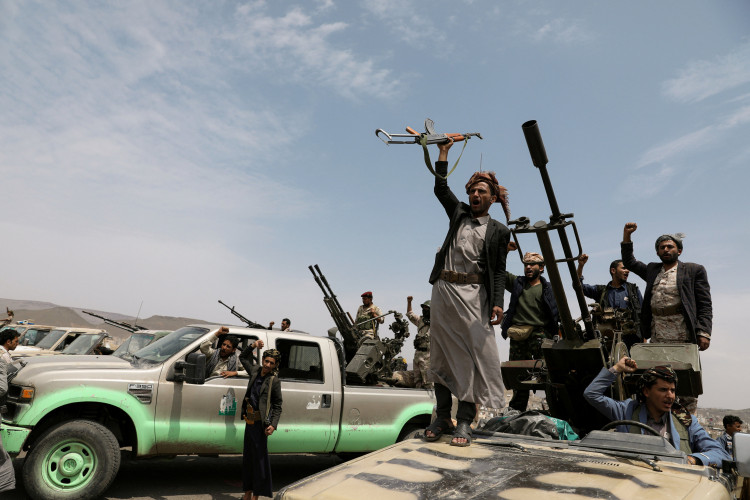In a worrying escalation of tensions in the Red Sea, Yemen's Houthi rebels have intensified their attacks on commercial vessels, significantly impacting global shipping and raising security concerns. The Houthis, controlling a significant portion of Yemen's territory including the strategic port city of Hodeidah, have declared that all vessels heading to Israel, regardless of their nationality, will be targets.
This bold stance has led major international shipping companies, including Maersk, to suspend operations in the area, while others like Hapag-Lloyd opt for longer routes around the Cape of Good Hope to avoid the volatile region.
The recent surge in attacks, including a missile strike on a Norwegian oil tanker and an attempted hijacking of a tanker carrying aviation fuel, has put the international community on high alert. The U.S. destroyer USS Mason has been actively responding to distress signals from attacked vessels, highlighting the imminent danger in the region.
The Houthi's aggressive posture and expanding warning have not only spiked shipping costs but also prompted the London insurance market to classify the southern Red Sea as a high-risk area, leading to soaring war risk insurance premiums.
The United States, recognizing the escalating threat, is fast-tracking the establishment of a multinational escort fleet, "Operation Prosperity Guardian," to safeguard commercial ships in the southern Red Sea. Oman's mediation efforts to persuade the Houthis to cease their attacks add a diplomatic dimension to the crisis. However, the efficacy of these initiatives remains to be seen, as the Houthis show no sign of relenting, and internal divisions within the international community persist.
The Houthi rebels' expanded aggression and the strategic location of the Bab-el-Mandeb Strait have profound implications not just for Israel but for global trade and security. With the threat extending to all vessels transiting to Israel through the Red Sea, the international response is crucial in ensuring safe passage and maintaining the flow of global trade. As the U.S. gears up to lead a protective alliance, the world watches closely, hoping for a de-escalation of hostilities and a return to safer maritime navigation.
Amidst these turbulent waters, the global shipping industry is forced to navigate a new reality of increased risk, higher costs, and complex geopolitical dynamics. The situation's resolution requires a concerted effort from the international community to address the Houthi threat and ensure the security of one of the world's most crucial maritime corridors. As diplomatic and military strategies unfold, the safety of the Red Sea's transit remains a paramount concern with far-reaching consequences for international trade and regional stability.




